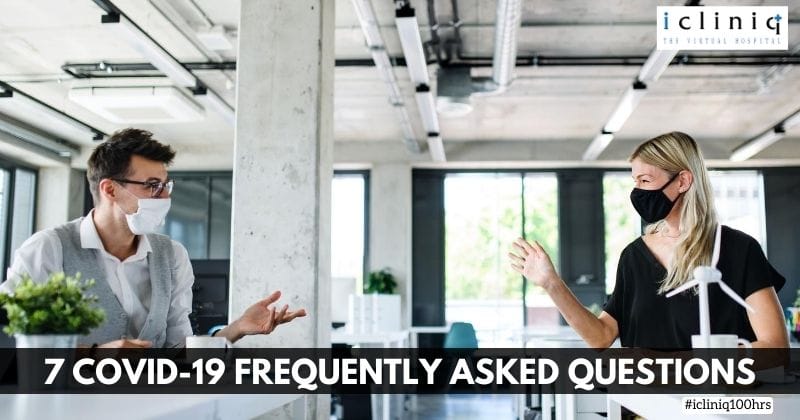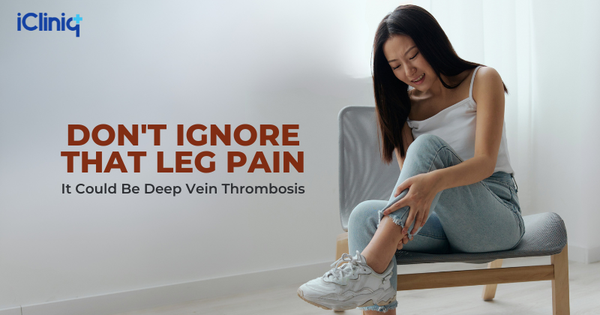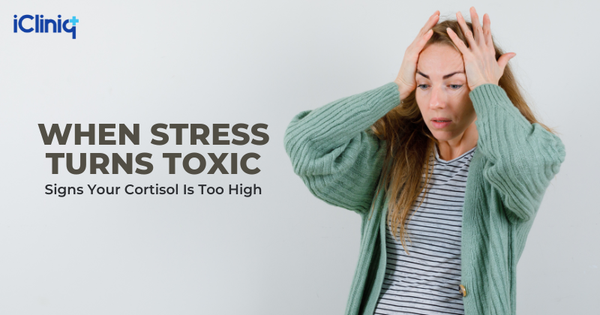7 COVID-19 Frequently Asked Questions

The current COVID-19 pandemic has created chaos around the world since the causative virus (SARS-CoV-2) was identified late last year. Scientists are finding new things about this virus every day, which has resulted in many doubts and questions. We have answered the frequently asked questions that people ask about SARS-CoV-2.

1. How Is COVID-19 Transmitted?

How does the new coronavirus (SARS-CoV-2) spread?
The new coronavirus is believed to spread through direct or close contact from one person to another. The respiratory droplets produced when a COVID-19-infected coughs, talks, sings, or sneezes, contain the virus. If you are standing close enough, the virus can enter your body through the mouth, nose, or eyes. People who do not appear sick or show symptoms can also spread the virus. You can also get infected by touching a contaminated object and then touching your eyes, nose, or mouth without washing your hands.
2. Can COVID-19 Spread via Feces?

Can the new coronavirus spread through the feces of an infected person?
The risk of transmission through the fecal-oral route, meaning getting infected by consuming food items contaminated by an infected person’s feces, appears to be low. Initial data showed the presence of viral particles in the feces of COVID-19-infected patients, but the capacity of these viral particles to spread the infection is still unclear. Make it a habit to wash your hands before and after eating and after using the toilet.
3. Who Is at Higher Risk?

Who is at risk of developing severe complications of COVID-19?
Based on the data available to date, older adults and people with comorbidities, such as high blood pressure, diabetes, heart disease, cancer, or lung disease, appear to develop severe complications of COVID-19 if they get infected.
4. Can Antibiotics Treat COVID-19?

Can antibiotics be used to prevent or treat COVID-19?
COVID-19 is a viral infection, and antibiotics treat bacterial infection. No antibiotics can prevent or treat COVID-19, as antibiotics do not work against viruses. Never take antibiotics without consulting a doctor first, as it can make certain bacteria resistant.
5. Treatments for COVID-19

Are there medicines or therapies to prevent or cure COVID-19?
Various medicines are being used to relieve symptoms caused by the new coronavirus, but these medicines do not cure the infection. They provide symptomatic relief to the patient, while the body naturally fights off the virus. Various clinical trials are ongoing to find a cure, and vaccines are being tested to prevent this infection. Until any official announcement is made, avoid self-medication, even with herbal or natural medicines.
6. Coronavirus Transmission

Can the new coronavirus be transmitted through the air?
Airborne transmission is the spread of the virus by droplets (aerosols) that remain suspended and virulent in the air for a long time and over a long distance. Studies have shown airborne transmission of SARS-CoV-2 during high-aerosol-generating medical procedures. But the spread of the virus through the air in the absence of aerosol-generating procedures is still under debate.
7. The Incubation Period

How long does a person take to show symptoms after getting infected?
The time between getting infected with the virus and showing symptoms (the incubation period) can be 1 to 14 days. Most people show symptoms in about five days.





